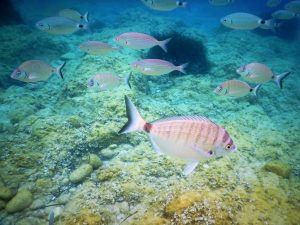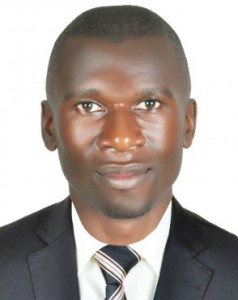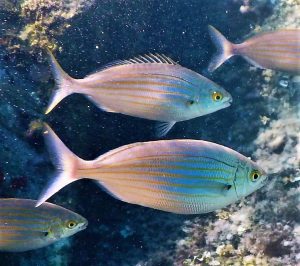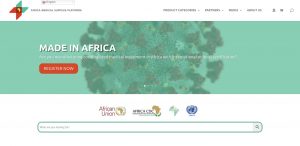LA SANITA’ AI TEMPI DEL CORONAVIRUS di Marco Geddes da Filicaia
Un'analisi puntuale e acuta dello stato di salute del nostro sistema sanitario – e della società, nella misura in cui influenza ovviamente le decisioni in ambito di salute pubblica – quando si è manifestata l' emergenza COVID, nel corso dell’evolversi dell’epidemia e di come dovrebbe riorganizzarsi nel prossimo futuro per fronteggiare il ripetersi di emergenze analoghe nonché gestire le conseguenze dell’attuale infezione

By Daniele Dionisio
PEAH – Policies for Equitable Access to Health
Review
LA SANITA’ AI TEMPI DEL CORONAVIRUS
di Marco Geddes da Filicaia*

Il Pensiero Scientifico Editore, settembre 2020
Indice generale
Qual’ è lo scopo del libro LA SANITA’ AI TEMPI DEL CORONAVIRUS scritto da Marco Geddes da Filicaia e fresco di stampa per i tipi de Il Pensiero Scientifico? L’Autore è cristallino: ‘Qui mi interessa valutare quello che potrei definire lo stato di salute del nostro sistema sanitario – e della società, nella misura in cui influenza ovviamente le decisioni in ambito di salute pubblica – quando si è manifestata questa emergenza, nel corso dell’evolversi dell’epidemia e come dovrebbe riorganizzarsi nel prossimo futuro per fronteggiare il ripetersi di emergenze analoghe nonché gestire le conseguenze dell’attuale infezione’.
In assoluta coerenza con gli intenti il libro si dipana con stile colloquiale e fruibile da ogni categoria di lettori, forte di un’ampia revisione della letteratura scientifica e della puntuale trasmissione della cronaca di questi mesi. Un testo pensato per un pubblico generale ma pure per il personale sanitario (di cui documenta ampiamente la dedizione e l’impegno) e per i leaders della sanità pubblica e privata. Il volume è corredato da un esteso indice dei nomi dei protagonisti, professionisti e politici, delle dinamiche di contrasto all’ epidemia da COVID-19 in Italia.
Nelle sue premesse il libro di Geddes trasmette alle coscienze percezione netta di quanto su scala mondiale, Italia inclusa, lo sviluppo tecnologico/industriale, irrispettoso degli equilibri naturali e ambientali continui a tradursi, nel contesto di pervasive politiche neo-liberiste di mercato, in sciagurate scelte di governo determinanti nello sconvolgimento degli ecosistemi globali con ricadute estreme: drastiche mutazioni climatiche foriere di devastazioni ambientali, impoverimento, decurtata produttività agricola, ….Senza dimenticare gli eventi epidemici o pandemici da ‘nuovi’ patogeni (Sars-CoV-2 incluso) favoriti nella loro insorgenza e diffusione dal deterioramento ambientale e sociale.
All’ origine di tutto? Il profitto a breve termine, è la risposta del libro, senza che la priorità, spesso enunciata, di uno sviluppo sostenibile sia stata mai fatta propria dalle scelte politiche internazionali. Nel merito, sono parole dell’Autore, ‘..fa riflettere che il bilancio della Nato (26 membri effettivi) raggiunga i 1.000 miliardi di dollari annui mentre quello dell’Oms, che raggruppa 194 Stati, assommi 3.768 milioni..’.
Dal contesto generale all’ ambito italiano
L’opera passa quindi a considerare le dinamiche italiane di contrasto alla pandemia analizzando (senza disconoscere il meritorio attivismo del governo in carica) importanti criticità generate da improvvide direttive di passate leadership nazionali ovvero da scelte attuali su base regionale.
In quest’ottica è posta in risalto la riduzione dei finanziamenti al servizio sanitario nazionale. Nell’ ultimo decennio, a partire dalla crisi finanziaria del 2008, la spesa sanitaria pubblica è calata in termini reali (prezzi anno 2000) da 95 miliardi (2008) a circa 82 miliardi (2018). La decrescita degli investimenti è iniziata dal 2010, passando da un valore di 3,4 miliardi a soli 1,4 miliardi nel 2017.
In tale contesto, quali elementi di debolezza? In particolare, la carenza di personale, afferma l’Autore, la cui contrazione, mediante blocco degli organici, è stata rilevantissima (46.000 addetti persi dal 2009 al 2017), aggiungendosi ad un ‘…ulteriore elemento di criticità, che è fondamentale. La rilevante riorganizzazione del settore ospedaliero, con accorpamenti, chiusura di ospedali di piccole dimensioni, diminuzione di posti letto è, ed era, sostenibile solo con un’adeguata riorganizzazione e potenziamento delle strutture intermedie post degenza e, in particolare, della medicina di comunità. Questo è il “tallone di Achille”, il punto debole, specie in alcune regioni che hanno puntato essenzialmente sulla qualità e “potenza” tecnologica, professionale, e anche di immagine, dei loro ospedali’.
Di fatto, la sanità territoriale non è stata potenziata, anzi si è avuta ‘…una riduzione dei medici e dei pediatri di base, un ulteriore impoverimento delle presenze infermieristiche, una riduzione dell’assistenza domiciliare, un allentamento dei rapporti fra servizi sanitari e sociali e anche questi ultimi hanno risentito della riduzione di finanziamenti’.
Una visione miope, dunque, laddove una presenza capillare sul territorio sarebbe indispensabile contro il coronavirus. Come l’Autore rileva, in sintonia con Ranieri Guerra direttore vicario dell’OMS, servono medici di base competenti, rapporti continui tra medici e aziende sanitarie, una mappatura dettagliata dei contagi, il contenimento immediato dei nuovi focolai in massimo 24 ore, la diagnostica a domicilio. Cosa ha funzionato in Veneto a differenza della Lombardia che ha prevalentemente puntato sull’ eccellenza della sua rete ospedaliera? In Veneto, dove un sistema socio-sanitario integrato esiste per legge regionale, ha funzionato proprio l’assistenza sul territorio.
Spostando lo sguardo all’ insieme del Paese, il libro di Geddes è fermo nell’ individuare il potenziamento della sanità territoriale e, nello specifico, dell’assistenza domiciliare per i soggetti che non necessitano di ricovero ospedaliero, quale obiettivo cardine a cui puntare sempre e comunque. Tanto più in occasione di eventi epidemici come l’emergenza COVID odierna dove l’ospedalizzazione ha favorito la diffusione del virus tragicamente impattando sulla salute del personale.
Al riguardo l’Autore rileva come da lungo tempo nell’ ambito delle direzioni sanitarie degli ospedali la ‘…funzione esecutiva sia stata orientata unicamente ai riassetti organizzativi a fini spesso prevalentemente economicisti; tale indirizzo ha prevalso sulle necessarie competenze sanitarie e igienistiche e su una funzione, anche autonoma, di indirizzo e vigilanza sulla struttura nel suo complesso che, anche in questa occasione epidemica, sarebbe risultata fondamentale’.
In chiusura
Quanto sopra, nel mentre richiama ai principali motivi conduttori, non esaurisce l’insieme delle problematiche discusse nel libro, come evidente da un semplice sguardo all’ indice generale.
Tutto ciò conferisce, a mio avviso, ulteriore valore alla pubblicazione sollecitando curiosità e invito alla lettura. In tal senso, è di interesse la risposta dell’Autore a due domande poste da PEAH:
PEAH: Dr. Geddes, nel libro Lei fa riferimento alle differenze fra regioni nell’ assetto della sanità territoriale sottolineando come la gamma dei servizi offerti sia in ogni caso assai ridotta in Italia in confronto ad altri paesi europei. Cosa può dirci?
Geddes: In effetti preoccupa la frammentazione delle iniziative regionali, frutto non solo di una competizione politica, ma di un “federalismo d’abbandono” che proprio nel sistema salute – il settore più rilevante delle politiche regionali – non ha certo contribuito a ridurre le diseguaglianze territoriali e a migliorare il nostro sistema sanitario. Le differenze fra regioni nell’ assetto della sanità territoriale sono rilevanti, e anche all’ interno di una stessa regione, in relazione al contesto sociale, alle dimensioni del comune in cui opera ecc., ma rispetto ad altri Paesi, sono sostanziali, in particolare per quanto riguarda la gamma di servizi offerti, assai ridotti in Italia. In Germania un medico di famiglia lavora con 3-5 collaboratori, fa regolarmente i prelievi, l’elettrocardiogramma, le ecografie e se deve fare approfondimenti o prescrivere un ricovero chiama direttamente lo specialista dell’ospedale di riferimento.
PEAH: E a proposito della necessità di riorganizzazione e ristrutturazione della sanità territoriale?
Geddes: Una riorganizzazione del sistema di cure primarie è fondamentale. Una visione che è mancata in questi anni, nei quali è stata portata avanti una rilevante riorganizzazione delle reti ospedaliere, ma non una altrettanto necessaria ristrutturazione della sanità territoriale.
Questi mesi hanno messo in evidenza la necessità di ricostruire un servizio territoriale capace di dare risposte adeguate sia in situazione di diffusioni epidemiche, sia nella gestione delle cronicità, consapevoli che, in una popolazione con un’alta percentuale di anziani, le due problematiche non vanno disgiunte.
Sono disponibili finanziamenti per investimenti e per l’assunzione di nuovo personale e tali risorse vanno utilizzate nell’ ambito di un disegno organico che ancora non si intravede. Si tratta di vincolarle a realizzare strutture unitarie di attività sanitaria e sociale, quali le Case della salute, con medici di medicina generale, attività specialistiche ambulatoriali, servizi sociali, servizi di assistenza domiciliare, associazioni di volontariato e dotandole di tecnologie capaci di implementare la risposta diagnostico-assistenziale.
Ciò comporta che le tecnologie, per le quali vi era stato un finanziamento di 235 milioni nell’ ultima Legge di Bilancio, siano collocate solo dove si è istituita una medicina di gruppo, all’ interno delle strutture del Servizio sanitario, e in collegamento con i servizi ospedalieri di riferimento.
Bisogna immettere in tali strutture territoriali personale infermieristico che affianchi il medico di base. Si tratta di affiancare al medico di base un professionista del Servizio sanitario, con competenze differenziate, perché ne potenzi l’ incardinamento nel sistema sanitario territoriale e il collegamento con gli altri livelli assistenziali e, in primis, con i servizi sociali e con l’ospedale di riferimento.
Bisogna pertanto ricostruire un impianto organizzativo omogeneo nazionale, articolato nelle diverse regioni, ma con una coerenza di sistema, che ponga al centro il Distretto socio sanitario, quale elemento di quel luogo naturale della cultura e della produzione di salute che è la Comunità. È il Distretto preposto a svolgere una funzione di governo delle varie componenti: sanitarie, sociali e assistenziali che operano nel territorio e ad assicurarne la inter-professionalità e la pianificata articolazione con le strutture ospedaliere di riferimento.
On the same topic on PEAH:
La Salute Sostenibile (Pensiero Scientifico Ed. 2018) review by Daniele Dionisio
Italy Experience with COVID-19 by Daniele Dionisio
————————————–
* About the Author
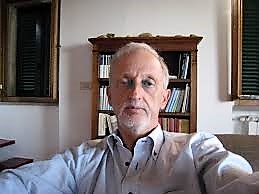
Marco Geddes da Filicaia
Formerly, Chief Medical Officer National Tumor Institute of Genoa; Chief Medical Officer Firenze Centro Hospital Center; Vice-President Italian Health Council; Councilor Department of Health and Human Services Firenze Municipality.
Some of the many books by Marco Geddes: Trattato di Sanità Pubblica (Editore NIS); Guida all’Audit clinico (Il Pensiero Scientifico Editore, 2008); Le Tavole del Regolamento dei Regi Spedali di Santa Maria Nuova e di Bonifazio (Polistampa, 2008); Cliente, paziente, persona (Il Pensiero Scientifico Editore, 2013); Peste. Il ‘flagello di Dio’ fra letteratura e scienza (co-authored with Costanza Geddes da Filicaia: Polistampa, 2015); La Salute Sostenibile (Il Pensiero Scientifico Editore, 2018).
Together with Giovanni Berlinguer, Geddes has edited the annual report La Salute in Italia (Ediesse).
He is a scientific committee member of the quarterly review Prospettive sociali e sanitarie.
